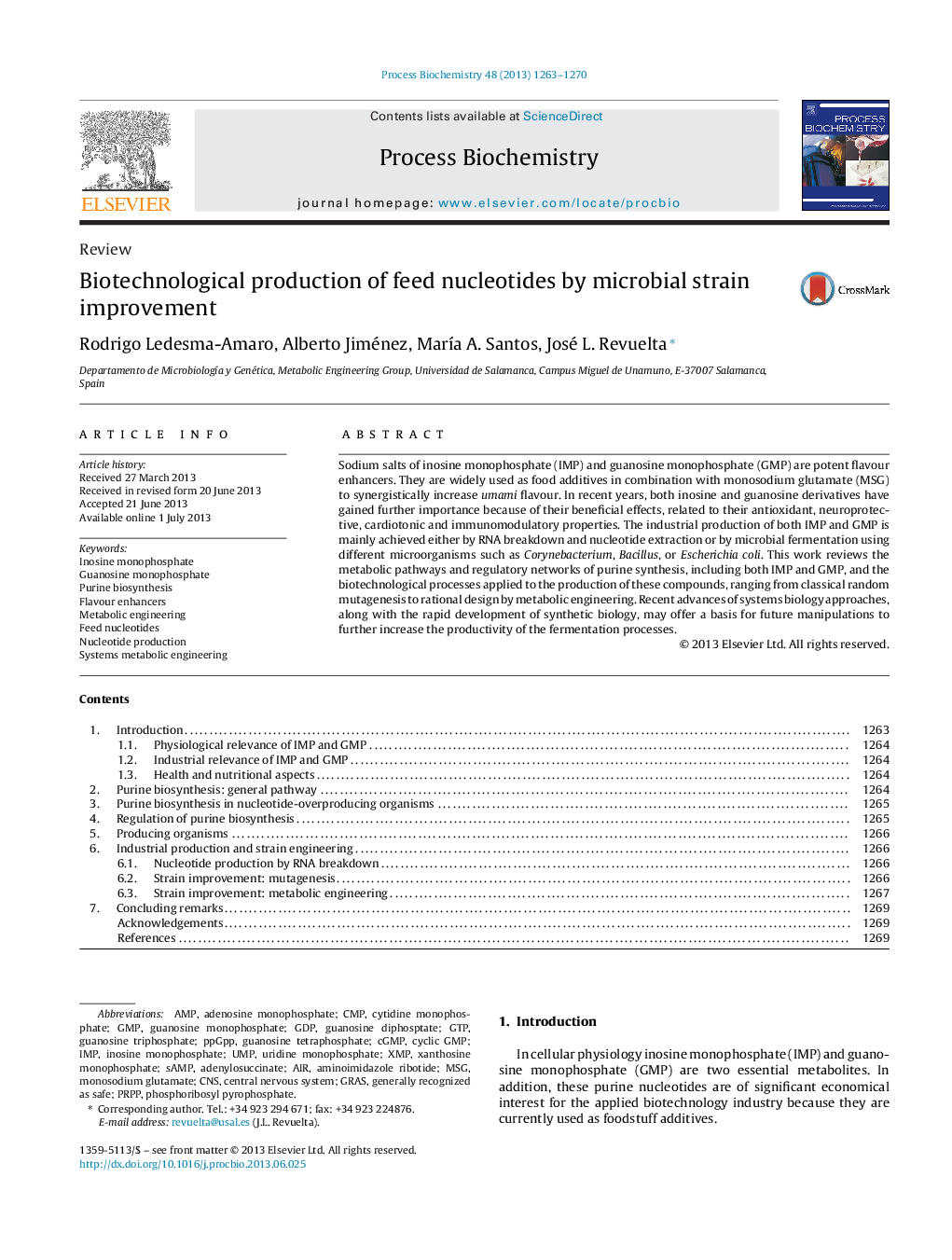| Article ID | Journal | Published Year | Pages | File Type |
|---|---|---|---|---|
| 34618 | Process Biochemistry | 2013 | 8 Pages |
•Nucleotides are economically important in food and feed industries.•The world feed nucleotides market was estimated to be 22,000 tm in 2010.•Feed nucleotide industries have duplicated its production in the last 3–4 years.•No updated reviews describe the advances on the microbial production nucleotides.
Sodium salts of inosine monophosphate (IMP) and guanosine monophosphate (GMP) are potent flavour enhancers. They are widely used as food additives in combination with monosodium glutamate (MSG) to synergistically increase umami flavour. In recent years, both inosine and guanosine derivatives have gained further importance because of their beneficial effects, related to their antioxidant, neuroprotective, cardiotonic and immunomodulatory properties. The industrial production of both IMP and GMP is mainly achieved either by RNA breakdown and nucleotide extraction or by microbial fermentation using different microorganisms such as Corynebacterium, Bacillus, or Escherichia coli. This work reviews the metabolic pathways and regulatory networks of purine synthesis, including both IMP and GMP, and the biotechnological processes applied to the production of these compounds, ranging from classical random mutagenesis to rational design by metabolic engineering. Recent advances of systems biology approaches, along with the rapid development of synthetic biology, may offer a basis for future manipulations to further increase the productivity of the fermentation processes.
